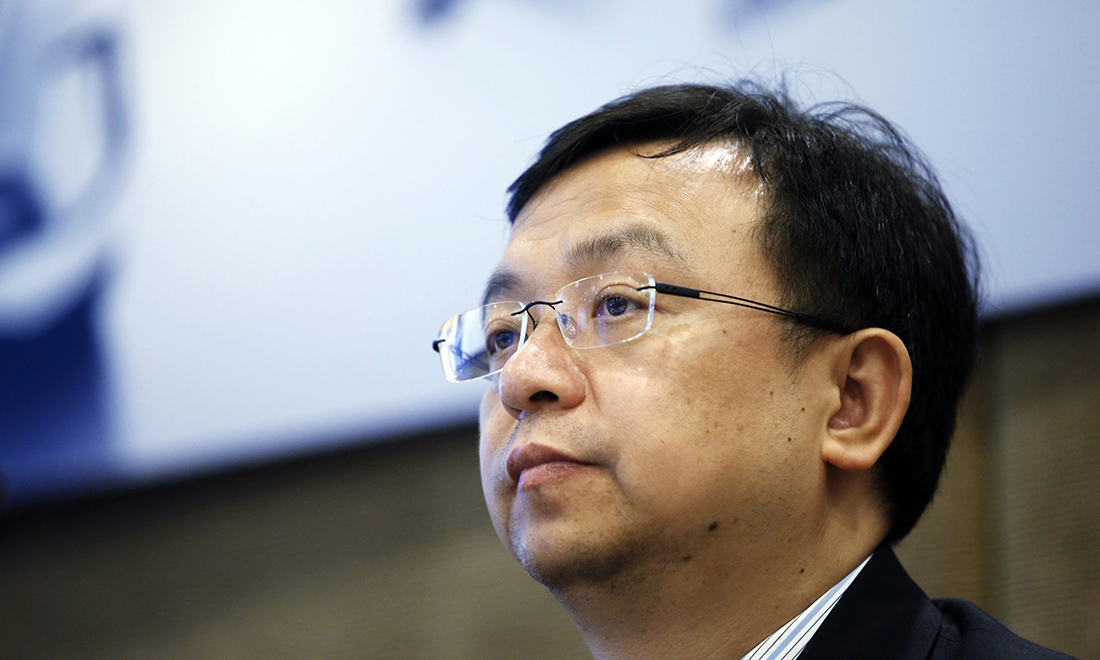
上周,大批中国汽车厂商亮相欧洲知名车展,德国媒体高呼德国汽车行业几乎到了生死存亡的时刻。
通常情况下,两年一度的德国国际车展(IAA)将为德国汽车厂商和供应商提供机会,展示他们最令人惊艳的创新,吸引游客和记者。
但在今年的车展上,所有人都在谈论一件事情——来自遥远东方的新电动汽车可能掀起滔天巨浪,在德国汽车厂商自己的本土市场对他们构成威胁。
德国一家著名商业周刊警告称“德国车展变成了中国秀”,而《明镜》周刊(Der Spiegel)预测“德国汽车行业将迎来艰难时期”。
埃隆·马斯克的特斯拉(Tesla)大获成功,已经让德国汽车厂商自愧不如,特斯拉轻轻松松地让梅赛德斯-奔驰(Mercedes-Benz)和宝马(BMW)等公司降级为业内的旁观者。他们最不想看到的就是一些新贵品牌,例如王传福的比亚迪,为了避开马斯克在中国的价格战而转战欧洲,从而加剧欧洲汽车厂商的困境。
比亚迪欧洲区的经理布莱恩·杨在接受德国《商报》(Handelsblatt)采访时表示:“我们希望做到质优价廉。”《商报》是德国企业界精英密切关注的一份日报。
中国的出口能力
据《南德意志报》(Süddeutsche Zeitung)报道,中国每年可以生产约4,000万辆汽车。这比中国的实际汽车需求量多出约1,500万辆,这远远超过了欧洲汽车市场的规模。此外,中国通过宁德时代和国轩高科等供应商,还控制了全球90%的电动汽车电池供应。
如果中国利用这种优势生产比亚迪海豹(Seal)这种质优价廉的汽车,那么其他同行除了品牌传承以外,就将毫无任何竞争优势。但阿尔法·罗密欧(Alfa Romeo)等受人尊敬的汽车厂商积攒的商誉,不可能永远存在下去。
欧洲行业游说组织欧洲汽车制造商协会(ACEA)的总干事西格丽德·德弗里斯说:“中国已经瞄准了欧洲市场,这有可能从根本上颠覆欧洲的行业格局。”
假装毫不畏惧
多年来,德国汽车厂商在中国市场如鱼得水,飞速增长,但过去十年,他们慢慢发现自己处于劣势。
2018年,中国汽车业巨头、吉利汽车的创始人李书福,成为梅赛德斯-奔驰的最大股东。
最初,梅赛德斯等品牌为了维持在全世界的主导地位,与中国本土企业签署了大量协议,希望与其中一些企业合作,以提升德国小汽车落后的竞争力。
梅赛德斯将其在Smart汽车的一半股份卖给了李书福的吉利汽车。Smart是一个微型车品牌,凭借在街道上能够直角停车而闻名。宝马则向长城汽车寻求帮助,委托后者帮助其生产电动版MINI,从明年开始将从中国进口这款汽车。这些交易曾经一度被认为是双赢。
现在,大众汽车(Volkswagen)不得不与中国新汽车品牌小鹏达成一笔7亿美元的合作协议,希望解决其在联网汽车领域专业知识不足的问题。1984年,大众汽车很有先见之明地进入中国市场,之后便一直是中国汽车市场的绝对王者。
德国商业日报《商报》在9月1日发表的一篇详细报告中问道:“视而不见?合作?还是模仿?”“德国汽车厂商正在心急如焚地寻找应对新竞争对手的方法。”
延迟的海啸
多年来,分析师一直预测价格低廉的中国汽车将如海啸般席卷西方市场,类似于早期的日本和后来的韩国汽车进入西方市场的情形。
但有太多的中国品牌在性能、甚至更糟糕的安全性等重要领域偷工减料,比如江铃陆风曾经在2005年被评价为“死亡陷阱”。
当行业观察家们忙着调整预测时,中国却将重心从借鉴西方的竞争对手,变成了领先的一方。
首先,中国汽车厂商迅速抓住从内燃机发动机向电动动力系统转变颠覆整个行业的机会。中国曾经试图在内燃机汽车领域追上竞争对手,但未能成功。现在,只有特斯拉有希望与中国电动汽车厂商一较高下,甚至只有其最畅销的Model Y才有竞争的实力。
但同样重要的是,中国品牌热衷于改善软件体验,对于习惯了智能手机应用程序微信满足大多数日常需求的中国人而言,更好的软件体验是必不可少的。埃隆·马斯克也曾经公开表示希望可以复制微信的主导地位。
宝马集团(BMW Group)的首席执行官齐普策(Oliver Zipse)在接受《商报》采访时表示,中国生产的汽车可能不符合欧洲人的品味,或者中国汽车厂商的售后网络不完善,可能无法提供汽车维护。
他说:“雄心与成功是两码事。”
但这一次,中国汽车厂商不止带着雄心来到德国。(财富中文网)
译者:刘进龙
审校:汪皓
上周,大批中国汽车厂商亮相欧洲知名车展,德国媒体高呼德国汽车行业几乎到了生死存亡的时刻。
通常情况下,两年一度的德国国际车展(IAA)将为德国汽车厂商和供应商提供机会,展示他们最令人惊艳的创新,吸引游客和记者。
但在今年的车展上,所有人都在谈论一件事情——来自遥远东方的新电动汽车可能掀起滔天巨浪,在德国汽车厂商自己的本土市场对他们构成威胁。
德国一家著名商业周刊警告称“德国车展变成了中国秀”,而《明镜》周刊(Der Spiegel)预测“德国汽车行业将迎来艰难时期”。
埃隆·马斯克的特斯拉(Tesla)大获成功,已经让德国汽车厂商自愧不如,特斯拉轻轻松松地让梅赛德斯-奔驰(Mercedes-Benz)和宝马(BMW)等公司降级为业内的旁观者。他们最不想看到的就是一些新贵品牌,例如王传福的比亚迪,为了避开马斯克在中国的价格战而转战欧洲,从而加剧欧洲汽车厂商的困境。
比亚迪欧洲区的经理布莱恩·杨在接受德国《商报》(Handelsblatt)采访时表示:“我们希望做到质优价廉。”《商报》是德国企业界精英密切关注的一份日报。
中国的出口能力
据《南德意志报》(Süddeutsche Zeitung)报道,中国每年可以生产约4,000万辆汽车。这比中国的实际汽车需求量多出约1,500万辆,这远远超过了欧洲汽车市场的规模。此外,中国通过宁德时代和国轩高科等供应商,还控制了全球90%的电动汽车电池供应。
如果中国利用这种优势生产比亚迪海豹(Seal)这种质优价廉的汽车,那么其他同行除了品牌传承以外,就将毫无任何竞争优势。但阿尔法·罗密欧(Alfa Romeo)等受人尊敬的汽车厂商积攒的商誉,不可能永远存在下去。
欧洲行业游说组织欧洲汽车制造商协会(ACEA)的总干事西格丽德·德弗里斯说:“中国已经瞄准了欧洲市场,这有可能从根本上颠覆欧洲的行业格局。”
假装毫不畏惧
多年来,德国汽车厂商在中国市场如鱼得水,飞速增长,但过去十年,他们慢慢发现自己处于劣势。
2018年,中国汽车业巨头、吉利汽车的创始人李书福,成为梅赛德斯-奔驰的最大股东。
最初,梅赛德斯等品牌为了维持在全世界的主导地位,与中国本土企业签署了大量协议,希望与其中一些企业合作,以提升德国小汽车落后的竞争力。
梅赛德斯将其在Smart汽车的一半股份卖给了李书福的吉利汽车。Smart是一个微型车品牌,凭借在街道上能够直角停车而闻名。宝马则向长城汽车寻求帮助,委托后者帮助其生产电动版MINI,从明年开始将从中国进口这款汽车。这些交易曾经一度被认为是双赢。
现在,大众汽车(Volkswagen)不得不与中国新汽车品牌小鹏达成一笔7亿美元的合作协议,希望解决其在联网汽车领域专业知识不足的问题。1984年,大众汽车很有先见之明地进入中国市场,之后便一直是中国汽车市场的绝对王者。
德国商业日报《商报》在9月1日发表的一篇详细报告中问道:“视而不见?合作?还是模仿?”“德国汽车厂商正在心急如焚地寻找应对新竞争对手的方法。”
延迟的海啸
多年来,分析师一直预测价格低廉的中国汽车将如海啸般席卷西方市场,类似于早期的日本和后来的韩国汽车进入西方市场的情形。
但有太多的中国品牌在性能、甚至更糟糕的安全性等重要领域偷工减料,比如江铃陆风曾经在2005年被评价为“死亡陷阱”。
当行业观察家们忙着调整预测时,中国却将重心从借鉴西方的竞争对手,变成了领先的一方。
首先,中国汽车厂商迅速抓住从内燃机发动机向电动动力系统转变颠覆整个行业的机会。中国曾经试图在内燃机汽车领域追上竞争对手,但未能成功。现在,只有特斯拉有希望与中国电动汽车厂商一较高下,甚至只有其最畅销的Model Y才有竞争的实力。
但同样重要的是,中国品牌热衷于改善软件体验,对于习惯了智能手机应用程序微信满足大多数日常需求的中国人而言,更好的软件体验是必不可少的。埃隆·马斯克也曾经公开表示希望可以复制微信的主导地位。
宝马集团(BMW Group)的首席执行官齐普策(Oliver Zipse)在接受《商报》采访时表示,中国生产的汽车可能不符合欧洲人的品味,或者中国汽车厂商的售后网络不完善,可能无法提供汽车维护。
他说:“雄心与成功是两码事。”
但这一次,中国汽车厂商不止带着雄心来到德国。(财富中文网)
译者:刘进龙
审校:汪皓
Chinese carmakers were descending on Europe’s premier car show last week in such large numbers, the German media is reaching a state of near existential angst.
Normally the IAA provides a biennial opportunity for the country’s vaunted automakers and suppliers to show off their most impressive new innovations, wowing visitors and journalists alike.
This time, however, everyone is only talking about one thing—the potential tidal wave of new electric vehicles from the Far East that threatens them in their own home market.
“The IAA becomes the China show,” one of the country’s leading business weeklies warned, while Der Spiegel predicted “trying times ahead for the German automotive industry.”
The country has already been humbled by the success of Elon Musk’s Tesla, which so effortlessly relegated companies like Mercedes-Benz and BMW to bystanders in their own industry. The last thing they need is for new upstart brands like Wang Chuanfu’s BYD to seek refuge from Musk’s price war in China by piling on the misery in Europe.
“We want to be premium and affordable,” said BYD Europe manager Brian Yang in an interview with Handelsblatt, a German daily paper closely monitored by the country’s corporate elite.
China export capacity
Roughly 40 million vehicles can be built annually in China, according to the Süddeutsche Zeitung. That’s about 15 million more than they actually need, a number far larger than the size of Europe’s own car market. Moreover the country also controls 90% of the world’s supply of EV battery cells through suppliers like CATL and Gotion.
If China can use this advantage to build cars like the BYD Seal that are seen as both premium and affordable, then there is no competitive edge left for the rest of the industry save to rely on brand heritage. But venerable carmakers like Alfa Romeo prove goodwill won’t last forever.
“China has its gaze set on the European market, with the potential to fundamentally change the face of Europe’s industries as we know it,” said Sigrid de Vries, director general of Europe’s industry lobby group ACEA.
Putting on a brave face
For years German automakers grew fat on the growth in China’s car market, but they have slowly found themselves on the back foot over the past decade.
Chinese auto tycoon Li Shufu, who founded Geely, became the largest shareholder in Mercedes-Benz back in 2018.
Initially, brands like Mercedes struck a number of deals with local Chinese companies to maintain their dominance around the world, hoping to get into bed with some of them with the aim of bolstering the lagging competitiveness of their small car range.
Mercedes sold to Li’s Geely half its stake in Smart, the minicar brand once famous for its ability to park perpendicular to the street. Meanwhile BMW turned to Great Wall Motor for help with its electric MINI, to be imported from China starting next year. At the time these deals were considered a win-win.
Now Volkswagen—once the undisputed king ever since its prescient bet to enter China back in 1984—has been forced to strike a $700 million deal with Chinese newcomer Xpeng in hopes of shoring up its lack of expertise in connected cars.
“Ignore? Cooperate? Imitate?” asked German business daily Handelsblatt in an extensive report published on September 1. “German manufacturers are feverishly looking for a way to deal with the new competition.”
Delayed tsunami
For years analysts have been predicting a tsunami of cheap Chinese cars washing up on Western shores, much the way first Japanese and later South Korean imports arrived.
But too many Chinese brands cut corners in important areas like performance or, worse, safety, with the Jiangling Landwind in 2005 earning a reputation as a death trap.
Yet while industry watchers were busy recalibrating their forecasts, China shifted its focus from trying to copy Western rivals to turning the tables on them.
First, they were quick to seize on the disruption offered by the shift to electric drivetrains from internal combustion engines, where they were playing a losing game of catch-up. Only Tesla can hope to compete on cost with Chinese EV makers right now, and even then arguably only when it comes to its bestselling Model Y.
But just as important has been the devotion by Chinese brands to improving the software experience—a necessity for a population that is used to accomplishing most of their daily needs through smartphone app WeChat, so dominant even Elon Musk openly wants to copy it.
In an interview with Handelsblatt, BMW Group CEO Oliver Zipse put on a brave face, arguing the Chinese may not build cars that match European tastes, or they could end up with an after-sales network ill-equipped to service their cars.
“Ambition is not the same as success,” he said.
But this time, China’s carmakers are offering far more than ambition.






